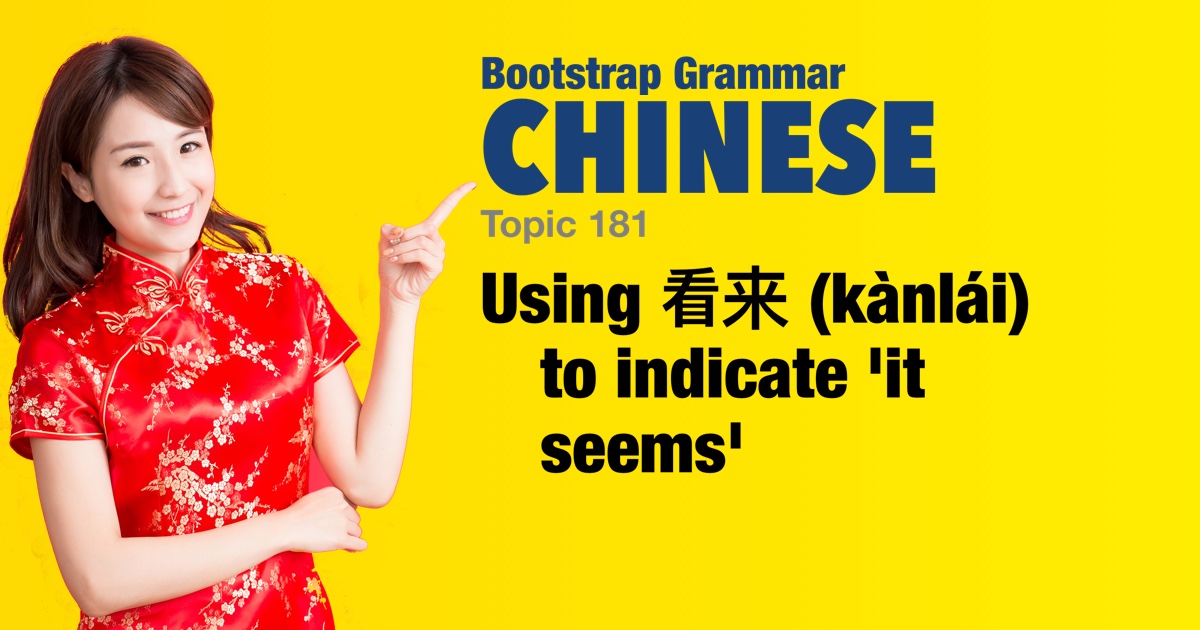Chinese grammar - Using 看来 (kànlái) to indicate 'it seems' |
|||
|
|||
The phrase 看来 (kànlái) is used to express an inference or a conclusion based on observations or evidence. — It is the equivalent of the English phrases 'it seems (that)' or 'it appears (that)'. |
| Examples: | |
|
看来今天他不来了。
kànlái jīntiān tā bù lái le. It seems he is not coming today.
|
|
|
看来天气很不错。
kànlái tiānqì hěn búcuò. It seems the weather is not bad.
|
|
|
看来我们需要买什么东西?
kànlái wǒmen xūyào mǎi shénme dōngxi? It seems we need to buy something? |
|
|
看来你很忙。
kànlái nǐ hěn máng. It seems you are very busy. |
|
|
看来你今天有什么计划?
kànlái nǐ jīntiān yǒu shénme jìhuà? It seems you have some plans today? |
|
|
看来他们已经出发了。
kànlái tāmen yǐjīng chūfā le. It seems they have already left.
|
|
|
看来昨晚下雨了。
kànlái zuówǎn xiàyǔ le. It seems it rained last night.
|
|
|
看来你们昨天玩得很开心。
kànlái nǐmen zuótiān wán#de hěn kāixīn. It seems you had a lot of fun yesterday.
|
|
|
看来他昨天去了哪里?
kànlái tā zuótiān qùle nálǐ? It seems he went somewhere yesterday?
|
|
|
看来他们已经解决了问题。
kànlái tāmen yǐjīng jiějué le wèntí. It seems they have already solved the problem. |
|
|
看来我们得换计划。
kànlái wǒmen děi huàn jìhuà. It seems we will have to change our plan. |
|
|
看来他今天不会来了。
kànlái tā jīntiān bú huì lái#le. It seems like he is not coming today. |
|
|
看来你们明年会搬家。
kànlái nǐmen míngnián huì bānjiā. It seems you will move next year. |
|
|
看来天气要变了。
kànlái tiānqì yào biàn le. It seems the weather is going to change. |
|
|
看来她不太高兴。
kànlái tā bú tài gāoxìng. It seems like she is not happy. |
|
 |
|




